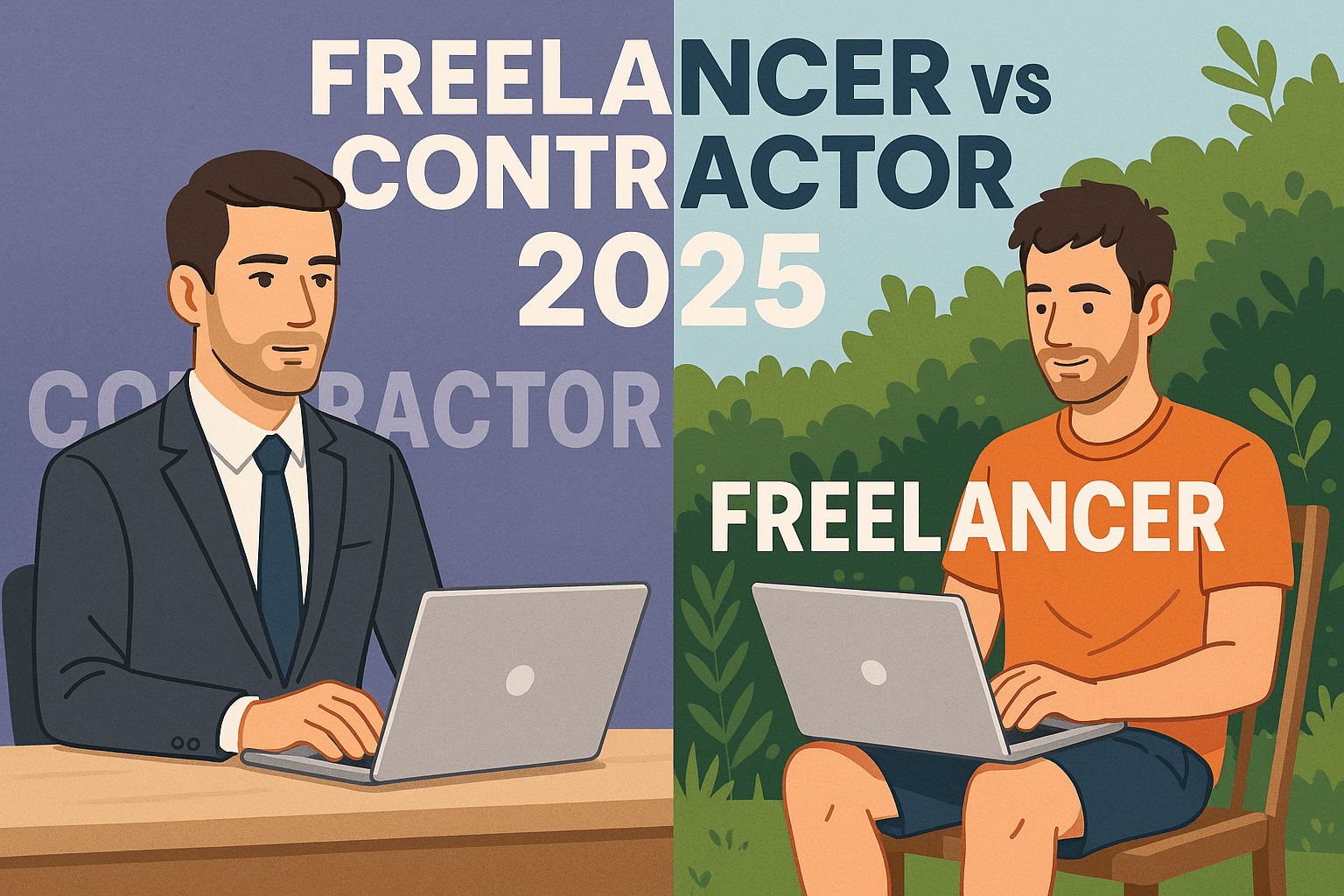Freelancing vs Contracting in 2025

The terms Freelancing and Contracting are often used interchangeably in the workplace. Perhaps a project requires a specific skillset to help complete a project or assignment. Perhaps the Project Manager can be over heard telling the Finance Director, "Oh, we need to get a freelancer in".
Now as someone who has worked both as a freelancer and a contractor there are subtle differences. In my mind a freelancer is a professional who might pitch to complete a piece of work for a set price or within a set timescale. This is in contrast to a contractor or temporary worker, albeit with a certain skillset, who is typically employed for a specified set of time to help complete a piece of work and do what they are told to. Typically this has conditions of employment, such as length of contract, and notice period.
Typically an agency might contact you about an assignment and hopefully offer you a contract of employment. To my mind this is quite different from a freelancer who will likely be self employed and offer their services as a sole trader or limited company. I think some of the confusion around this stems from the fact that the same worker or professional can either be a freelancer or a contractor.
An example of where these words are mixed interchangeably is at YunoJuno. They were recently described as being in the top four "freelancer engagement and management solutions" companies by the industry research group Everest. Founded in 2012, to date YunoJuno have built up a network or over 100,000 "freelancers" on their platform and are offering their services in the form of an employment agency to clients via their platforms controlled marketplace. In 2022, YunoJuno's majority shareholding was acquired by Gibraltor based management consultant Richard John Koch. In March 2025, YunoJuno announced their first quarterly profit since their inception.
The key point I want to make is that this management solution, primarily provides the "freelancer" with the ability to submit a timesheet for their time, and will ensure that the freelancer is paid either directly to their limited company or typically through their chosen umbrella company. Surely this is a contract of employment, not a project assignment with key deliverables as such that you might expect a company to pitch for. They are not actually freelancing but contracting as specified by the terms of and conditions of employment, their ability to submit a timesheet and the ability to seek financial redress if their contract is not honoured, much like any other contractor or temporary worker.
Historically an employment agency will employ a freelancer or contractor on behalf of a client. They will set up the legal contracts that conform to UK legislation around temporary employment. In return the freelancer agrees in advance to commit to that period of employment for a agreed renumeration. So the freelancer, is in actual fact a contractor.
So when a the project manger say's they "need a freelancer", I think what they really mean is, "we need a contractor" or even better "we need a freelance contractor".
Add new comment